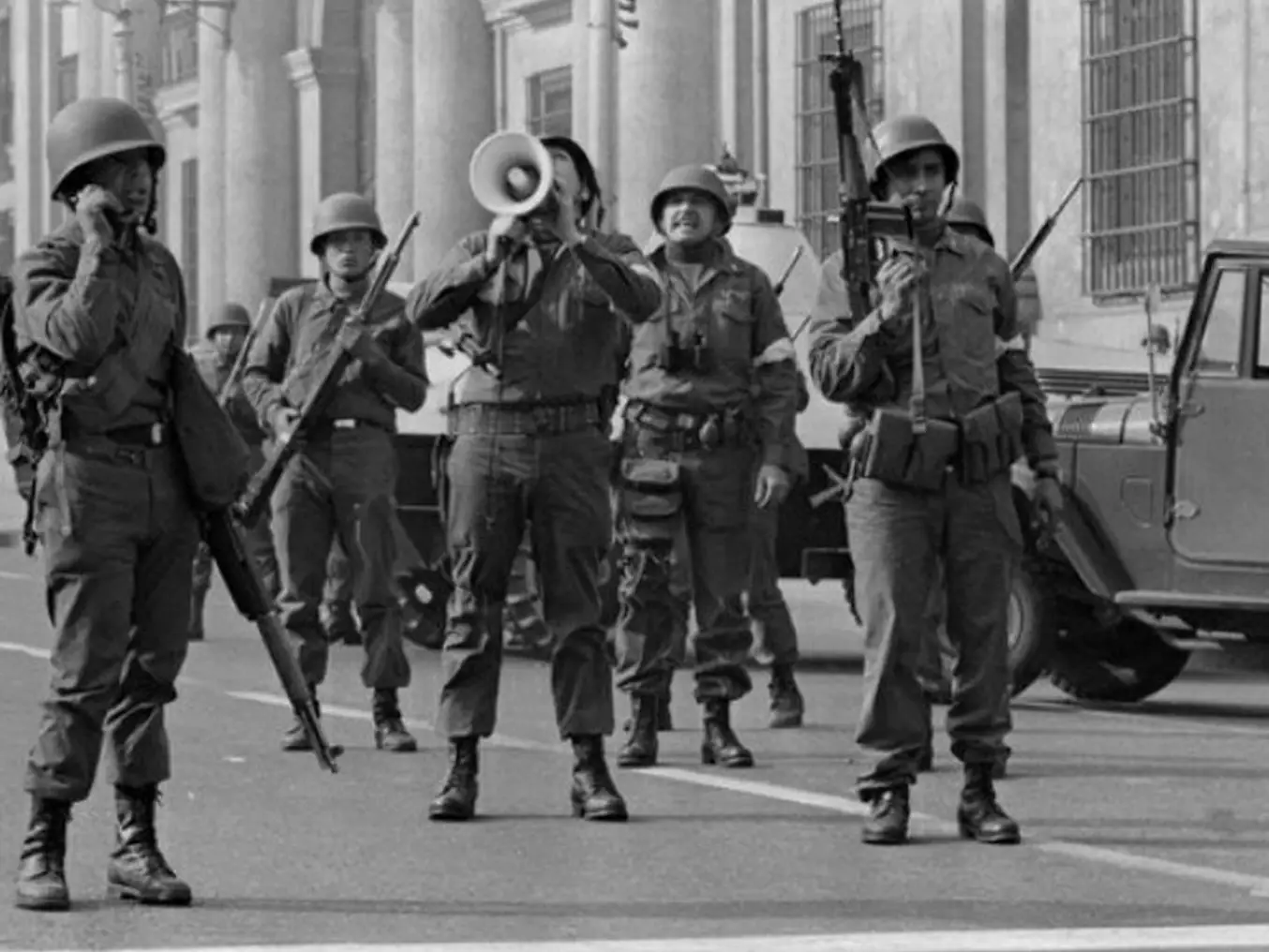There are terms that simultaneously carry an enormous emotional charge along with a great capacity to explain events. It is true that both their use and their meaning vary over time, but one of them maintains its passionate character. This is probably due to the complexity of the facts that define their great emotional intensity and the need to establish an interpretative framework that makes possible the existence of clearly established options for claiming social support or acquiescence.
On the other hand, they are terms that configure a liturgy that seems out of place in a supposedly mature society, a theatricalization of dissent, of confrontation, which, nevertheless, brings with it the trick of its polysemic character. It is not so much the quantity as the intensity with which an expression such as “coup d’état” can burst into the dispute and become acerbic in defining the framework of a political discussion.
A dry statement, of extreme harshness, full of dramatic ancestral meanings that, however, in the heat of the fight is reduced to the meaninglessness of the hackneyed that empties of its denouncing power to become just another rambling speech. When this expression is used to typify a given situation, I am not sure if one is aware of the different aspects whose sequence is numerous and impossible to cover here: from its origin in modern political science, the 18th of Brumaire, to the elaboration by Curzio Malaparte of his manual written in 1930.
In Spain, there is a long tradition that also extends to the field of semantic battle. The coup d’état of July 1936 was called, by those who perpetrated it, an uprising to soften the severe symbolism hidden in the term. In February 1981 there was a coup d’état that failed. At the same time, this categorization was adjectivized by terms that spoke of its strength (soft coup) or of the forces that instigated it (from the civic-military coup to the self-coup). Therefore, the matter is old and close, as well as convoluted. I bring this circumstance up because it has become topical in Latin American politics in the last two months. Brazil and Peru are two examples of this.
For the last fifteen years, there have also been talks of coups d’état in Honduras and Paraguay. For these two countries, later joined by Brazil, the presidential ouster was immediately labeled as such by the supporters of Presidents Manuel Zelaya and Fernando Lugo, and President Dilma Rousseff. While Zelaya was forcibly removed from his residence and flown to Costa Rica, Lugo and Rousseff left power under their own steam after political trials. An unequivocal form of a coup d’état of licit militancy, but intellectually inadequate, which led to the opening of other conceptual avenues of less dramatic content such as “presidential interruption”.
More recently, in 2019, Evo Morales was invited to leave power after a confusing election day and in a highly polarized scenario, largely because Morales ignored the result of a popular consultation unfavorable to his reelection. In Brazil, at the end of 2022, the term was used again to qualify first the electoral defeat of Jair Bolsonaro, given an alleged fraud for which no evidence was provided, and shortly thereafter to define the shameful and criminal actions of his supporters when they violently invade the headquarters of the three branches of government last January. In the same double way, detractors and sympathizers of Pedro Castillo have used it in Peru to refer to his attempt to dissolve the Congress and then to qualify his imprisonment.
The scenario, therefore, leads to a use that, beyond its political-constitutional conceptualization, enters, once again, into the realm of narrative. Defining what happened with a sonorous locution full of connotations implies positioning oneself ahead of the adversary; it infers being in possession of a legitimizing truth of what happens, but completely distancing oneself from the rules of the game and from any institutionalized mechanism.
For all these reasons, I propose a simple definition for this event with such a high degree of significance. But first I would like to recall that politics refers to the management of power in the public sphere and that this entails the management of the conflict that exists between people. The evolution over time has led to the generalized acceptance of certain principles such as that of legal and rational legitimacy, and the explicit acceptance that there must be a monopoly of force subject to the law.
Thus, a coup d’état implies the breakdown of a certain institutional order articulated, according to the sense of the rule of law, by means of the use of force and twisting the will of the person who until then held power. Force was used in Honduras, but not in Paraguay, Brazil, or Peru. The interruption of the presidential mandate, however, occurred in all cases, something that has to do with more complex processes that require more elaborate and less simplistic interpretations and explanations, although the coup d’état remains the most attractive narrative axis.
*Translated from Spanish by Janaína Ruviaro da Silva












